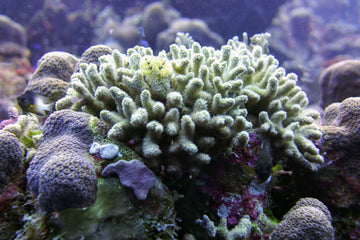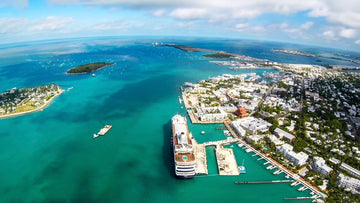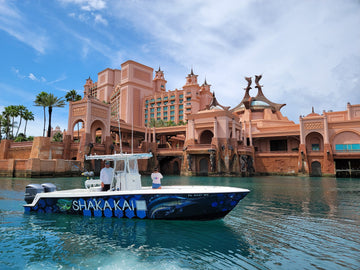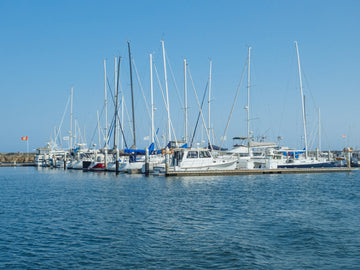Over recent years, I’ve been able to put in an astounding amount of work to help the environmental community…especially at my age.
However, I am fully aware not everyone has access to the same opportunities and experiences. This World Ocean’s Day, I’d like to take a moment to bring attention to exactly why our oceans are suffering. On World Environment Day, I briefly discussed ocean acidification, temperature rise, and microplastics. Today, I get to explain some of those in more detail!
Ocean acidification is almost exactly what it sounds like. Remember when I mentioned that the ocean is a giant carbon dioxide scrubber? Well, all the extra greenhouse gases being absorbed by surface waters causes them to become more acidic. Humans are literally changing the pH of the ocean. It may seem very minor, but this has a dire effect on corals and certain planktons. Scientists actually use plankton such as Emiliania huxleyi (coccolithophore) and Limacina helicina (pteropod) to determine the rate and impact of ocean acidification in various studies. These microscopic plankton produce calcium bicarbonate shells (the same compound that coral skeletons are made of), making them a crunchy snack for other plankton and organisms in their larval stage. However, with ocean acidification becoming more and more prominent, the very base of the ocean’s food chain is literally dissolving. It is theorized that one outcome of acidic oceans will be jellyfish-dominated ecosystems. Since I’ve yet to mention it: I absolutely cannot stand jellyfish. They are my least favorite creature on this Earth. A jellyfish dominated ocean would be my worst nightmare.
Unfortunately, plankton are not the only ones breaking down. Coral reefs are made up of two main types of coral: hard and soft. Hard corals are the ‘reef-builders’. Their rigid skeletons generally withstand the impact of waves and currents. By doing so, they provide shelter for the fish and other organisms that give birth on the reef. In addition to being nurseries, they are used as protection from larger predators (like sharks). Soft corals also perform vital functions. They contribute to breaking up wave impact, and help the reef to effectively protect our shorelines from eroding away. Although they were once thought to be little more than a sort of veneer on the rockface of the reef, they actually provide vital homes to snails, smaller fish, and even algae. However, reefs are very picky about the temperature they live in. Escalation in greenhouse gases has caused excessive heat to be trapped in our atmosphere. Part of the ocean’s key function is to absorb a lot of that heat, which is what makes Earth such a suitable temperature for life to thrive. Only now the ocean is absorbing too much heat at a faster rate, and the reefs cannot adjust. You may have heard of a phenomenon known as ‘coral bleaching’. This occurs in hard corals when the symbiotic algae (called zooxanthellae) that resides in coral tissue cannot provide enough food, and is expelled. I like to think of corals as micro-apartment buildings. Each polyp and its zooxanthellae live in one room. It is the zooxanthellae’s job to absorb sunlight and provide energy for the coral through photosynthesis. However, when it gets too hot, the zooxanthellae stop producing food. Since they are no longer holding up their part of the rent, the polyp kicks out their bad roommate, but as a result they essentially starve themselves to death. Corals can recover from a bleaching event, but they often do not when the stress is too great. Soft corals have a very different reaction. They simply melt away. Coral reefs are incredibly delicate systems, and require many moving parts in order to function. They are also integral to many other ecosystems within the ocean. Without reefs, scientists believe it is possible that the entire ocean could collapse. Without the ocean to support fisheries and tourism, many subsequent countries— who rely on these for national income and resources - would suffer greatly.
If you would like to learn more, I highly recommend watching Chasing Coral on Netflix. I have had the opportunity to meet one of the amazing team members, who worked with us firsthand on my high school restoration project in Bonaire. Digital media is becoming incredibly prominent in the globalization of this generation, and it is utterly important that we learn to use these powers to spread the facts. By spreading facts, you allow other people to develop their own interests and conclusions. As a Marine Affairs student, my goal is to help shorten the ‘divide’ between scientists and citizens.





Awesome post !!
Great Post!